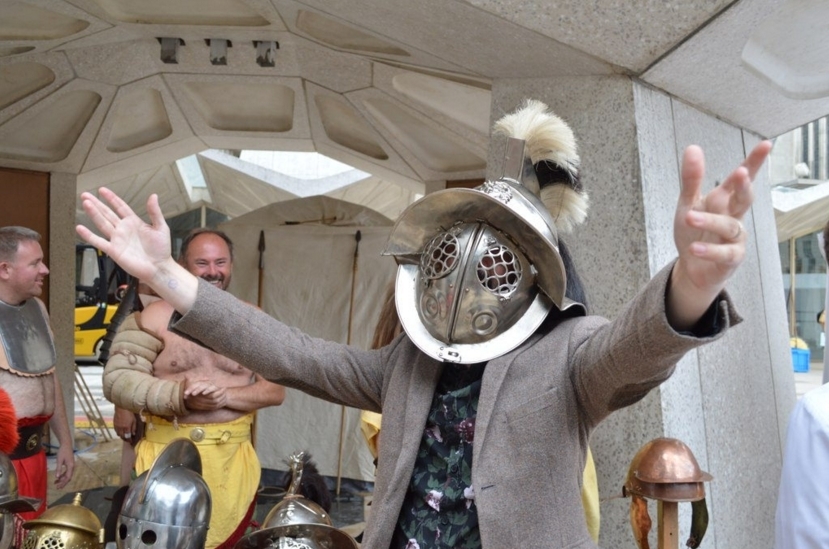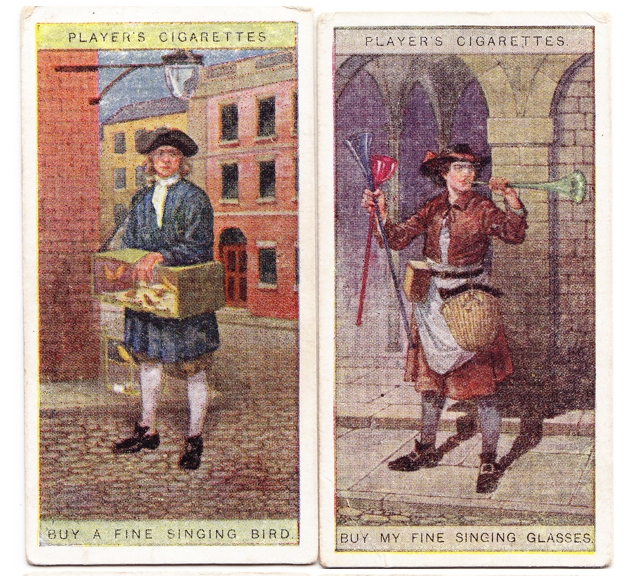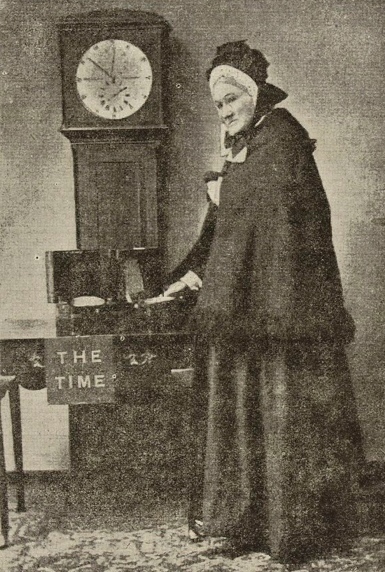Franchising, retail, business

09/11/2015
Jobs: sometimes it feels like London's got all of them. Yet during its rich capitalist history, many of London's professions have dropped by the wayside. Here are some you'll struggle to find on Monster.
Grisly jobs
We begin in Londinium; if you were employed on the site of Guildhall around AD 73, there's little chance you'd be a librarian or curator. Far more plausible you'd make ends meet as a gladiator at the newly-erected amphitheatre — slaughtering, or otherwise being slaughtered, in front of a baying 7,000-strong crowd. London's gladiators had petered out by the 5th century, although these days you can land a job in a reconstruction gladiatorial bout, occasionally still held on the very site where thousands met their match.
Another gory career that existed for centuries in London was executioner. At first these were public figures who carried out their duties at the Tower of London, the Tyburn Tree and Newgate Prison; later they did it privately inside London's prisons. Prolific executioner Harry Allen didn't hang up his boots until 1964, carrying out one of the last executions in London, at Wandsworth prison on 8 September 1961.
'Resurrection man' may sound the polar opposite of executioner, but of course, it was barely any more fulfilling. Come the mid-18th century, the medical profession was in dire need of fresh corpses for dissection. Scores of job seekers began pilfering bodies from the city's graveyards. Worse, there were the Burkers — London's most notorious were John Bishop and his motley crew — who 'created' their own corpses to sell on. It took the Anatomy Act 1832 to grind this gruesome profession to a halt.
Grimy jobs
Henry Mayhew's London Labour and the London Poor (1851), is an encyclopedia of London's working class jobs, many of which have long bitten the dust. Among them are thankless chores including crossing sweepers, matchgirls, cat and dog meat dealers (the food they hawked was usually horse-based) and — perhaps worst of all — pure finder. These poor souls plodded London's streets, scooping up dog mess, which was then sold on and used to tan leather. As this account from Mayhew, interviewing a 60-something pure collector, shows, even with a job like this, people are liable to reminisce about the 'good old days':
... the times were good then and we used to do very well. If we only gathered a pail-full in the day we could live very well; but we could do much more than that, for there wasn't near so as many at the business then, and the Pure was easier to be had.
A similar job, tosher — those who scavenged the sewers for items of value too — has disappeared too, although plenty remain employed by London's Victorian sewer network.
'Resurrection man' may sound the polar opposite of executioner, but of course, it was barely any more fulfilling. Come the mid-18th century, the medical profession was in dire need of fresh corpses for dissection. Scores of job seekers began pilfering bodies from the city's graveyards. Worse, there were the Burkers — London's most notorious were John Bishop and his motley crew — who 'created' their own corpses to sell on. It took the Anatomy Act 1832 to grind this gruesome profession to a halt.
Grimy jobs
Henry Mayhew's London Labour and the London Poor (1851), is an encyclopedia of London's working class jobs, many of which have long bitten the dust. Among them are thankless chores including crossing sweepers, matchgirls, cat and dog meat dealers (the food they hawked was usually horse-based) and — perhaps worst of all — pure finder. These poor souls plodded London's streets, scooping up dog mess, which was then sold on and used to tan leather. As this account from Mayhew, interviewing a 60-something pure collector, shows, even with a job like this, people are liable to reminisce about the 'good old days':
"... the times were good then and we used to do very well. If we only gathered a pail-full in the day we could live very well; but we could do much more than that, for there wasn't near so as many at the business then, and the Pure was easier to be had."
A similar job, tosher — those who scavenged the sewers for items of value too — has disappeared too, although plenty remain employed by London's Victorian sewer network.

Street jobs
Another rich source of London's lost jobs are the John Player's cigarette cards and their Cries of London series (these date from 1916, but depict workers from way back), recently covered in glorious detail by the Gentle Author. Here is a catalogue of street jobs that no longer exist: the coal man and his cry of "small coale a penny a peake", the singing bird seller, the singing glass seller (these fragile Venetian trumpets were sold cheaply in Elizabethan London), the knife-spectacle-brushes-combs-pins-and-needles-watches-chains-and-other-trinkets seller (presumably the business cards became too expensive to print out), the door to door pen salesman and the hot peas merchant (these days, of course, it's all about the Magic Corn). Studying these cards, we realise just how many of London's jobs have folded for good.  Jobs you had to get up early for
Jobs you had to get up early for
A knocker-up isn't what you might think; in the days before alarm clocks, these were the people employed to go around tapping on bedroom windows with a long stick, or otherwise, firing dried peas at the panes (the preferred method of Mary Smith of Limehouse). It wasn't just a stop-gap job either; Charles Nelson from Hoxton worked for 25 years as a knocker-up. The profession was still going in the 1930s.
Ruth Belville, meanwhile, was a local celebrity who made ends meet by setting her trusty watch 'Arnold' to Greenwich Meantime, then selling the time to people. It was a job she inherited from her father's widow in 1892, and Ruth kept at it right up until 1940, when she retired, aged 86. Time was kind to her in more ways than one.
Old fashioned jobs that just about still exist
Despite the countless jobs now phased out, a number of seemingly-past-it careers are still in effect in 21st century London. The filthy-mouthed watermen may be a thing of the past, but there remain a select few who make money by floating people from one side of the Thames to the other (the Woolwich Ferry and the Hammertons Ferry perhaps the best known).
Other jobs you may think had vanished, but have actually kept on keeping on, include bell makers, gas lamp lighters (five are employed in London to keep 1,500 gas lamps burning), rag-and-bone men, mudlarks (although this is more hobby than profession), beadles (a ceremonial role today), Beefeaters, chimney sweeps, rat catchers, paper bag merchants, blacksmiths, and lift attendants (which you'll still find in some of Londoner's swisher hotels such as Claridge's).
And if you search hard enough, you can land yourself a properly ancient job. Earlier this year, Hampton Court Palace was advertising for a spit turner for their kitchen (or 'turn-broach' to use the correct terminology). Provided you like the aroma of slow cooking meat, and don't mind working your biceps up into tree trunks, this may well be the best historic job that's still on the market.
By:http://londonist.com/2015/11/lost-jobs?utm_content=bufferdbd0b&utm_medium=social&utm_source=twitter.com&utm_campaign=buffer